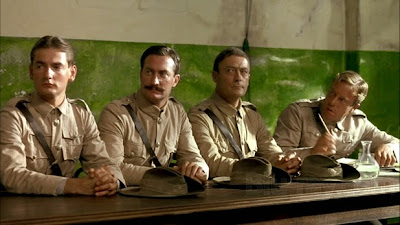Format: DVD from personal collection on laptop.
Once I heard that Leonard Nimoy died yesterday, I pretty much knew that I’d be watching the 1978 version of Invasion of the Body Snatchers. I’m a big evangelist for the original version from the 1950s, but I have avoided this first remake for one main reason. I’d heard that it was good from a lot of people but I was worried that it wouldn’t compare with the first version. I hoped it would, but there was a part of me that very much feared being disappointed. This was especially true because the 1993 version (Body Snatchers) and the 2007 version (The Invasion) were not widely regarded as being worth watching.
My fears were unfounded. This is a very good movie, and a very good version of the basic story. This is also one of those rare instances where I have read the source material. I find it very interesting that in both the original film and in this first remake, the filmmakers have opted for a much more downbeat ending than the book on which the story is based. There are a number of differences here from the original story and original screen version, but this is smart enough to hit the same emotional beats and the same plot points and important moments.
























